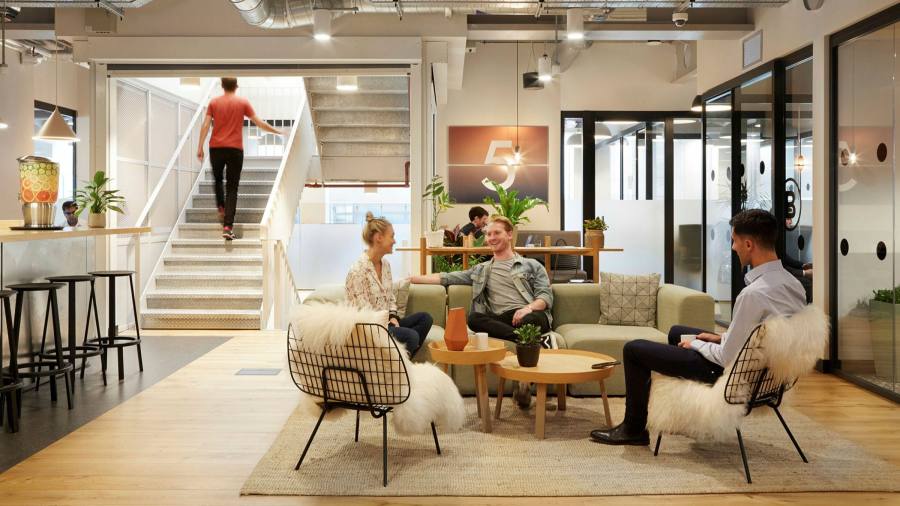[ad_1]
Office politics are hotting up. Some managers are pushing staff to return; others are committing to remote working forever; delirious finance directors are slashing property bills by amounts they could only dream of pre-pandemic.
In the first camp, Goldman Sachs’ chief executive David Solomon this week expressed regret that office staffing had subsided from a modest autumn peak of 25 per cent of pre-Covid levels in New York and London, 35 per cent in continental Europe and more than 50 per cent in Asia.Â
Solomon is convinced that Goldman’s “innovative collaborative apprenticeship culture†cannot thrive when staff are working from home. “This is not ideal for us,†he told a conference. “And it’s not a new normal. It’s an aberration that we’re going to correct as quickly as possible.â€
Equally decisive — in the opposite direction — is Coinbase, which has opted to become a “decentralised companyâ€. Since dumping its San Francisco headquarters, the cryptocurrency company has seen 29 per cent of staff based in the city leave for cheaper or more pleasant locations.Â
In contrast to Solomon, Coinbase’s chief executive Brian Armstrong reckons an office is not at all necessary for a vibrant corporate culture. “Overall we’ve seen high engagement, belonging, learning, and creativity happen in a remote-first environment,†he wrote in a blog this week.
Even companies far stuffier than Coinbase sense an opportunity. HSBC said this week that it plans to reduce its office footprint by a gargantuan 40 per cent over time.Â
What does this mean for purveyors of flexible office space? If everyone either works at home or goes back to their 2019 routine, it is bad news. But in any sort of middle ground, there will be a need for spaces that are not head offices or home offices. The model has something to offer everyone: whether you follow the philosophy of Goldman, Coinbase or HSBC.
Mark Dixon, chief executive of flexible office space company IWG, says he has just enjoyed a record week, signing big new clients, including Cisco and Staples. At the same time, existing customers have started to drift back to IWG’s sites. “There has been a marked turn this week,†he says.Â
That does not mean a return to normal. “My prediction would be that in five years, certainly 10 years’ time you would have to explain to your kids what commuting was,†says Dixon. “Commuting is just this totally stupid thing that people have been forced to do.†He notes that office towers contain thousands of people, most of whom “don’t really work together†and the ones who do “communicated with text, Teams or Zoom in the officeâ€.
People will still want to meet but, Dixon argues, that might not be your office in Canary Wharf or midtown Manhattan but a local spot that is most convenient for the participants. “You’ll pick an appropriate place on an Uber-like app.â€
There is, of course, another well-known company in this sector, which shares a lead shareholder with Uber. WeWork, which imploded in 2019 after investors balked at its business model, self-dealing management and eye-watering valuation, is in talks to go public once again, this time via a $10bn transaction with a special purpose acquisition company.
WeWork has problems that IWG does not, a hangover from its breakneck expansion: it is still losing money and it is encumbered with lots of glitzy city centre sites that are unlikely to be fully occupied for the foreseeable future. The challenge of its model — short-term leases for customers and longer-term leases for itself — persists.
But it has name recognition, deep-pocketed backers and a proven ability to burn billions of dollars and survive. Given endless liquidity to reposition its portfolio, it could be a real business in tomorrow’s world. All it took was a devastating global pandemic and a historically stupid bubble.
[ad_2]
Source link





